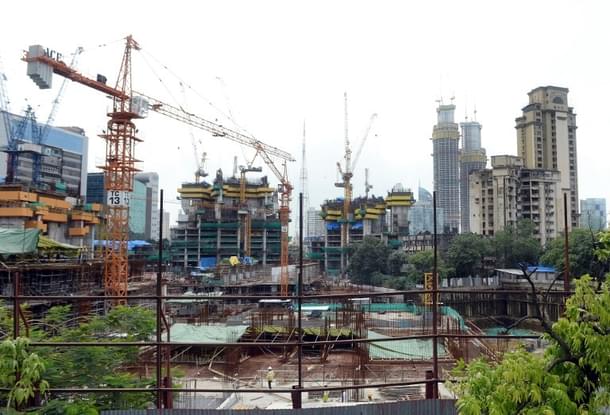Insta
Everything You Need To Know About The Real Estate Act That Comes Into Force Today
Swarajya Staff
May 01, 2017, 10:59 AM | Updated 10:59 AM IST
Save & read from anywhere!
Bookmark stories for easy access on any device or the Swarajya app.


Ending the nine-year-long wait, regulation of real estate sector involving over 76,000 companies across the country becomes a reality today (1 May) with the Real Estate (Regulation & Development) Act, 2016 coming into force.
With all the 92 sections of the Act coming into effect from today, developers shall get all the ongoing projects that have not received completion certificate and the new projects registered with regulatory authorities within three months i.e. by July end. This enables the buyers to enforce their rights and seek redressal of grievances after such registration.
Ahead of the Act coming into force, the Ministry of Housing and Urban Poverty Alleviation has formulated and circulated Model Real Estate Regulations for adoption by the regulatory authorities in the states and union territories.
Under these regulations, developers are required to display sanctioned plans and layout plans of at least 3X2 feet size at all marketing offices, other offices where properties are sold, all branch offices and head office of the promoters in addition to the site of project. Real estate regulatory authorities may take decisions on all issues preferably through consensus failing which through voting with chairman using casting vote in case of a tie.
There shall be quorum for the meetings of the regulatory authorities and if a meeting is adjourned due to lack of such quorum, such meeting can take place without quorum. Members of regulatory authorities shall declare interest if any in the matters coming up for discussion and shall not participate there in.
Some of the major provisions of the Act, besides mandatory registration of projects and real estate agents include:
- Depositing 70 per cent of the funds collected from buyers in a separate bank account in case of new projects and 70 per cent of unused funds in case of ongoing projects.
- Projects with plot size of minimum 500 sq/mt or eight apartments shall be registered with regulatory authorities.
- Both developers and buyers to pay the same penal interest of SBI's marginal cost of lending rate plus 2 per cent in case of delays.
- Liability of developers for structural defects for five years
- Imprisonment of up to three years for developers and up to one year in case of agents and buyers for violation of orders of appellate tribunals and regulatory authorities.
Further to several rounds of consultations, the Ministry of Housing and Urban Poverty Alleviation has made several and substantial changes in the Real Estate Bill that was first introduced in the Rajya Sabha in 2013 to make the final act more effective towards promotion of the sector.
As per industry information, between 2011 and 2015, real estate projects in the range of 2,349 to 4,488 were launched every year amounting to a total of 17,526 projects with a total investment of Rs 13.70 lakh crore in 27 cities. About 10 lakh buyers invest every year with the dream of owning a house and the act will empower all through transparency and accountability that it brings to this sector.
Also Read: What The Real Estate Bill Is All About
With Inputs From ANI.





